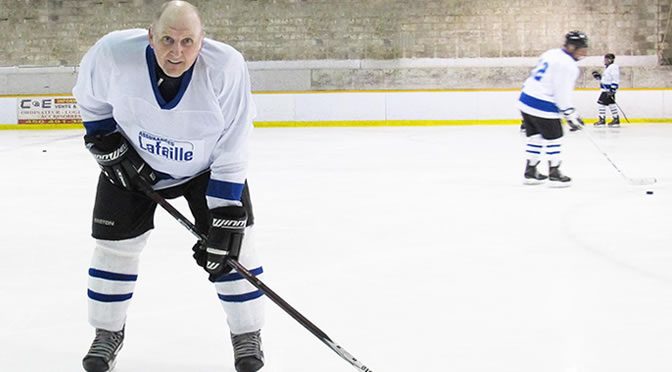Many studies have searched for ways to fight cancer and improve the lives of cancer patients.
Exercise could be as effective as drugs in treating prostate cancer, researchers hope to show.
A first international clinical trial led by Professor Fred Saad and his colleagues aims to show that the life of metastatic prostate cancer patients can be extended with exercise.
Professor Fred Saad:
“Typical patients with metastases often become sedentary.
It is thought that this affects cancer progression.”
Professor Saad continued:
“We want to reduce mortality by at least 22%, which represents about six months of longer survival.
This is the equivalent benefit of a new drug.
Exercise could therefore supplement available treatments, inexpensively.”
About 900 patients with advanced prostate cancer around the world will participate in the study.
Professor Saad says:
“We will study exercise as if it were a drug added to standard treatments.
All patients will be treated within the latest scientific knowledge for this type of cancer.
They will continue to follow their therapies and take their medications.
But half of the patients will receive psychosocial support with general recommendations on physical exercise.
The other half will also follow a high intensity exercise program.”
Professor Robert Newton, an exercise medicine expert, has designed a particular cardiovascular and strength training program for the “exercise” group in this study.
“They will have an hour of aerobic and resistance training three times a week.
An exercise specialist will supervise them for the first 12 months, and then they will continue without direct supervision.
We will evaluate quality of life, appetite, and treatment tolerance in relation to their improved physical condition.”
The benefits of exercise will be measured through muscle biopsies and blood samples.
Professor Saad says:
“People with cancer develop all sorts of complications related to metastases, such as fractures or severe pain.
It is hoped that exercise will strengthen muscles and bones.”
The theory is that exercise can not only help patients cope with the therapy but can also directly reduce the development of cancer resulting in increased survival.
The outcomes of this study won’t be clear for five years but researchers hope that exercise will become the next therapy against cancer.
Alfred Roberts a 70-year-old patient with advanced prostate cancer plays hockey twice a week .
He is certain that exercise helps to beat the cancer:
“I’ve always been active.
Hockey keeps me in shape and keeps my mind off things.”
Image credit: Anick Roberts
